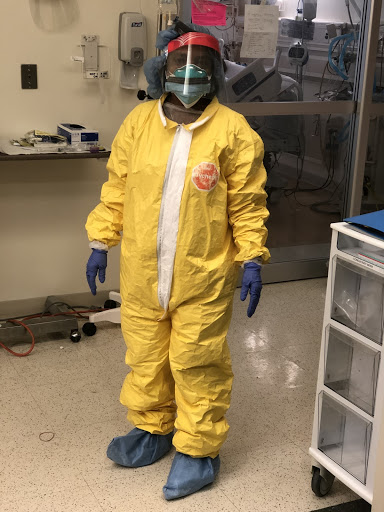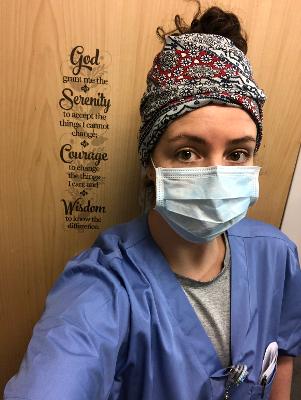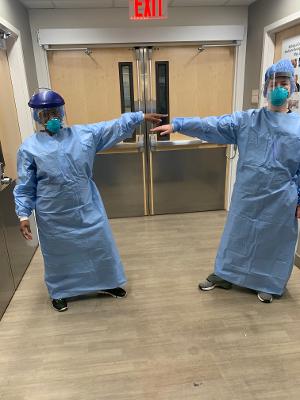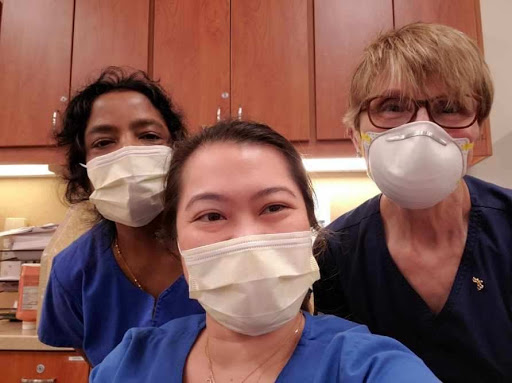

Throughout the country, signs on lawns, banners on buildings, clanging pots and pans, and soaring voices celebrate America’s health care workers’ tireless efforts against the coronavirus. Within the Princeton UMC family worship several healthcare professionals and their families. In the first of an occasional series, Ashleigh Donaldson and Deena Prakash answer questions about their experiences working during COVID-19.
Since August 2018, physical therapist Ashleigh Donaldson has worked at Montefiore Medical Center in the Bronx. Currently, she is working in the ICU. For 20 years, Deena Parkesh has worked as a nurse at Capital Health in Trenton. Deena works in hemodialysis, a specialty that uses a machine to remove waste and water from the blood.
Ashleigh, can you describe your day? As a PT in the ICU my job consists mostly of evaluating the functional level (for discharge planning) of patients and, when appropriate, starting to mobilize them. With COVID patients, we are seeing their oxygen levels drop significantly with functional mobility, so sometimes even sitting them up for a couple of minutes in the ICU is difficult.
What is your biggest challenge? Firstly, as I am sure everyone has heard, we originally did not have enough equipment to safely see patients. This meant we were either not wearing appropriate equipment, or, we weren’t seeing patients as often as we should because we were trying to conserve gowns/masks etc. Another challenge has been that patients are not allowed to see family members,and watching them deal with everything on their own has been hard. Personally, my biggest challenge has been not seeing my family. I know I am exposed every day so I absolutely cannot see them under any circumstances, and I am not sure when it will be safe to see them.”
Deena:“It is very challenging to work since 99% of our patients go on dialysis three times a week for the rest of their lives. Their only choice of treatment is a kidney transplant. Through this long term care, the patients become like family members to the nurses.. A few of my newly infected patients have died due to loss of kidney function. It is very hard for both patients and the staff. Fear and apprehension are very common.”
Where do you find strength? Joy? How do you maintain hope? Ashleigh: ” The hospital has received many food donations and a lot of positive messages of support. Patients give me strength; they are fighting so hard and it helps us to fight hard too. Quiet times of prayer help to bring me to a place that is calm. I have also received so many supportive messages from friends, family, and of course this church. I would like to say now that I am so grateful for the prayers, cards, and calls to my mom. I find joy in seeing the patients improve. When a patient is discharged, a song plays in the hospital; when a patient finally sits up, medical staff cheer outside their room. People are all pulling together which gives me faith that humanity, kindness, and the human spirit will prevail.”
Deena: “We are together at His Mercy during this pandemic.I pray to God every day for strength and courage, and for my patients’ recovery. I have never before seen nursing care like this before. It is frightening. To do our jobs, we need a lot of physical strength and mental stamina. Indeed, I appreciate our church family for thinking of me, and thank them for all of their prayers.”


